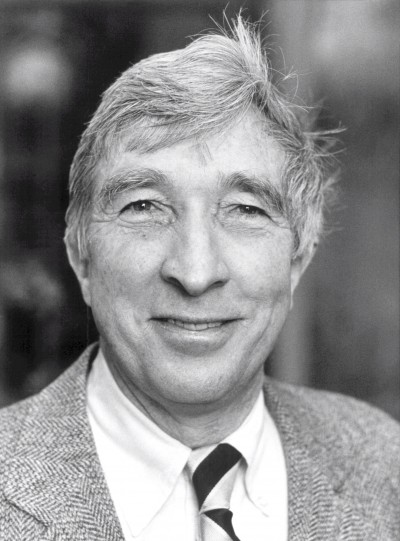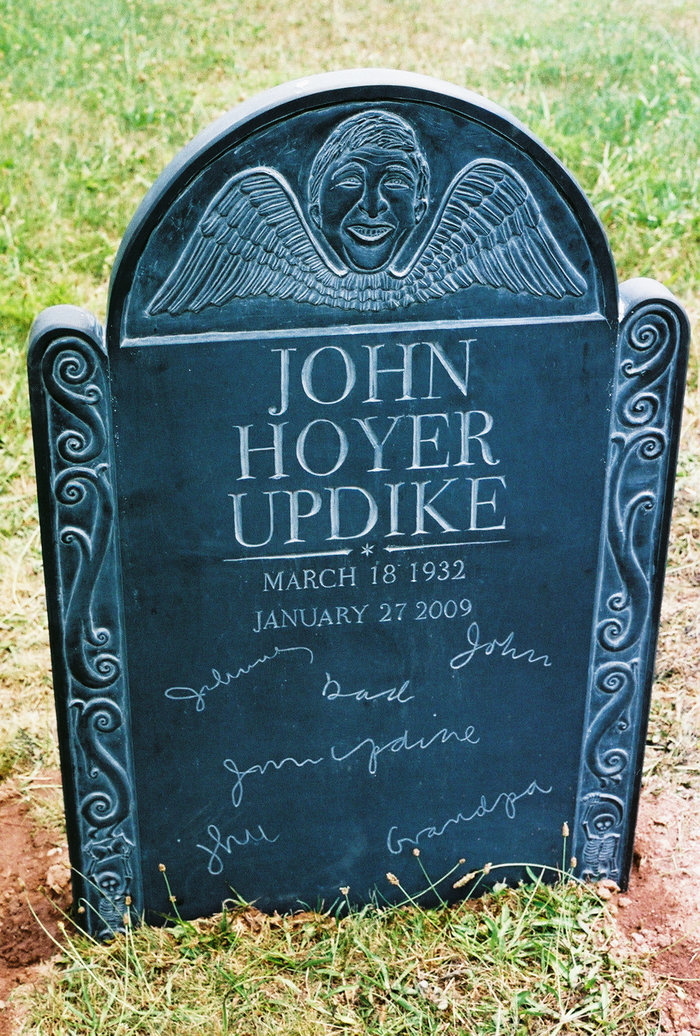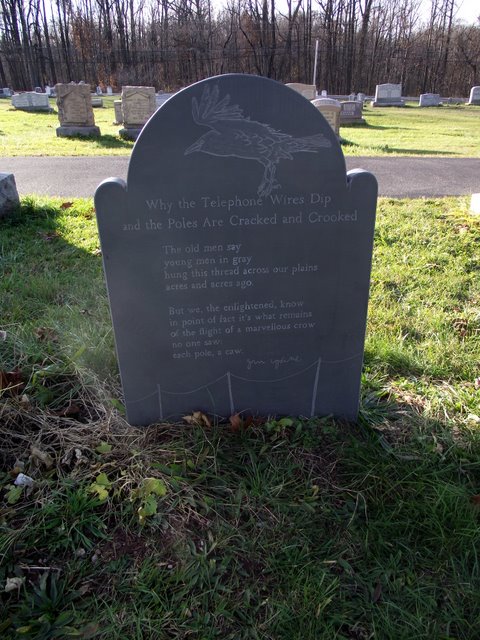John Updike (John Hoyer Updike)

Updike’s most famous work is his “Rabbit” series (the novels Rabbit, Run; Rabbit Redux; Rabbit Is Rich; Rabbit At Rest; and the novella “Rabbit Remembered”), which chronicles the life of the middle-class everyman Harry “Rabbit” Angstrom over the course of several decades, from young adulthood to death. Both Rabbit Is Rich (1982) and Rabbit At Rest (1990) were recognized with the Pulitzer Prize. Updike is one of only three authors (the others were Booth Tarkington and William Faulkner) to win the Pulitzer Prize for Fiction more than once. He published more than twenty novels and more than a dozen short story collections, as well as poetry, art criticism, literary criticism and children’s books. Hundreds of his stories, reviews, and poems appeared in The New Yorker, starting in 1954. He also wrote regularly for The New York Review of Books.
Describing his subject as “the American small town, Protestant middle class,” Updike was well recognized for his careful craftsmanship, his unique prose style, and his prolificity. He wrote on average a book a year. Updike populated his fiction with characters who “frequently experience personal turmoil and must respond to crises relating to religion, family obligations, and marital infidelity.” His fiction is distinguished by its attention to the concerns, passions, and suffering of average Americans; its emphasis on Christian theology; and its preoccupation with sexuality and sensual detail. His work has attracted a significant amount of critical attention and praise, and he is widely considered to be one of the great American writers of his time. Updike’s highly distinctive prose style features a rich, unusual, sometimes arcane vocabulary as conveyed through the eyes of “a wry, intelligent authorial voice” that extravagantly describes the physical world, while remaining squarely in the realist tradition. He described his style as an attempt “to give the mundane its beautiful due.”
Updike also commonly wrote about death, his characters providing a “mosaic of reactions” to mortality, ranging from terror to attempts at insulation. In The Poorhouse Fair (1959), the elderly John Hook intones, “There is no goodness without belief… And if you have not believed, at the end of your life you shall know you have buried your talent in the ground of this world and have nothing saved, to take into the next”, demonstrating a religious, metaphysical faith present in much of Updike’s work. For Rabbit Angstrom, with his constant musings on mortality, his near-witnessing of his daughter’s death, and his often shaky faith, death is more frightening and less obvious in its ramifications. At the end of Rabbit at Rest (1990), though, Rabbit demonstrates a kind of certainty, telling his son Nelson on his deathbed, “…But enough. Maybe. Enough.” In The Centaur (1963), George Caldwell is afraid of his cancer and does not have any religious faith. Death can also be a sort of unseen terror; it “occurs offstage but reverberates for survivors as an absent presence.”
Updike himself also experienced a “crisis over the afterlife”, and indeed “many of his heroes shared the same sort of existential fears the author acknowledged he had suffered as a young man: Henry Bech’s concern that he was ‘a fleck of dust condemned to know it is a fleck of dust,’ or Colonel Ellelloû’s lament that ‘we will be forgotten, all of us forgotten.’ Their fear of death threatens to make everything they do feel meaningless, and it also sends them running after God—looking for some reassurance that there is something beyond the familiar, everyday world with ‘its signals and buildings and cars and bricks.'”
Born
- March, 18, 1932
- USA
- Reading, Pennsylvania
Died
- January, 27, 2009
- USA
- Danvers, Massachusetts
Cause of Death
- lung cancer
Cemetery
- Robeson Lutheran Church Cemetery
- Plowville, Pennsylvania
- USA



